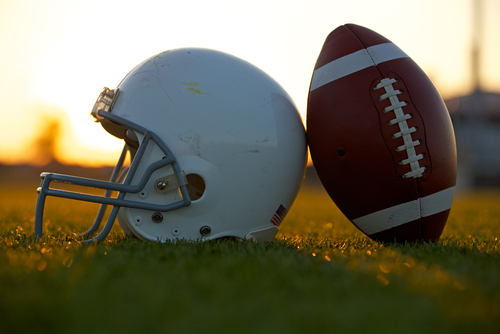
Kentucky High School Team Plays with NFL Rated Helmets
High school football remains the most popular sport for young male athletes in Kentucky. And one bluegrass high school team is taking player safety as top priority this year by purchasing the NFL’s top performing helmet to reduce concussions rates and prevent future head injuries like chronic traumatic encephalopathy (CTE). A total of 36 Bearcat football players at Kentucky Country Day School, a private school located in Louisville, are set to wear the costly Vicis Zero1 helmet this season through a private donation and players families.
These special helmets are made with a pliable exterior rather than the hard plastic of traditional helmets. The inside is lined with vertical cones that can bend on impact and absorb stronger contact. At least 400 other U.S. high school programs will have players using Vicis helmets this season.
Participating in High School Sports and Personal Injury Risks
CTE is a degenerative brain disease that gained mainstream attention last year after being linked to the deaths of past high school, college, and professional football players. The serious disease is caused by brain cells depleting after repeated head injuries and blows taken by specific athletes, mostly those who play football. If your child receives a blow to the head while playing any sport, even those other than the common athletics known for brain injuries such as football, soccer, or baseball, seek medical attention immediately.
Kentucky High School Athletic Association (KHSAA) in partnership with the Kentucky Medical Association and its Sports Medicine Advisory Committee provides this list of concussion symptoms to guide parents, coaches and young athletes:
- Headache
- Confusion
- Fuzzy or blurry vision
- Nausea or vomiting (early on)
- Sensitivity to noise or light
- Feeling sluggish, tired, or groggy
- Feeling unusually irritable
- Sleeping more or less than usual
- Trouble falling asleep
- More emotional
- Nervousness or anxiety
- Difficulty thinking clearly
- Difficulty concentrating
- Difficulty remembering new information
If a student athlete does exhibit even one of these symptoms, a head injury should be suspected, and the young athlete should be removed from play, parents should be notified, and the athlete should not return to play before being evaluated by a licensed health care provider and a written clearance completed.
If left undiagnosed, concussions can turn into traumatic brain injuries or CTE and in some cases become fatal. Parents should be educated on how to identify the symptoms of serious and ongoing head injuries and get help as soon as possible to diagnose them.
The team at Rhoads & Rhoads wishes all Kentucky athletes and their coaches good luck to a safe and injury-free playing season ahead!
Keep Your Student Athlete Safe
While most youth sports will come with some sort of risk to injury, we hope the benefits of participating in sports still outweigh these risks for the vast majority. Unfortunately, though, sometimes coaches or other athletic staff (and parents) will allow a seemingly ready athlete return to play before fully healed. If your child athlete has endured a serious injury of fatality because of their participation in a school supervised sport, and it was caused by negligent, reckless, or intentional acts (or failure to act), the wrongdoer can be held accountable.
Call us at 888-709-9329 or contact us by e-mail to schedule an appointment with one of our Madisonville or Owensboro personal injury attorneys.


